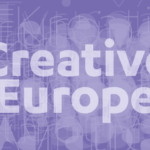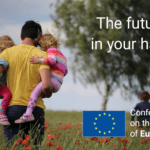Happy Music Day! This June 21, as every year since 1975, when this date was declared the European Day of Music, the musical world is celebrating, because today, in a large number of cities around the world, this art will once again be available to the public free of charge.
Origin of the European Day of Music
The precursor of this idea was the American musician Joel Cohen in 1976, who proposed that musical groups should play during the two solstices celebrated every year, the first on June 21 and the other on December 21, which became a fact from that same year in Toulouse, France.
After a few years, music acquired a more predominant nuance thanks to Maurice Fleuret, an outstanding musical director at the beginning of the eighties, who worked more reliably to give a relevant role to those who are dedicated to the art of composing, but leaving aside the type of genre, hierarchies and origins, to achieve a true musical revolution, where everyone had a place.
The European Day of Music became official in 1982. It was in June of that same year, where for the first time, a group of musicians took to the streets to celebrate this date, which from that moment on would be free, with the intention of entertaining the public and where there was no distinction in terms of musical genres and that would open the doors to new manifestations such as urban music, rap or techno music, among others.
What are the main objectives of this celebration?
The main objective of this day is not only to emphasize the benefits and importance of musical art around the world, but also to promote peace and friendship among nations through the union caused by music. It is well known that music is a universal art form that transcends barriers and can unite populations under the same purpose. This is the reason why the celebration is gaining more and more strength.
Music will always represent a reason for celebration and among its main objectives is:
A greater cultural exchange among the peoples of the world where different musical styles and genres are highlighted.
To achieve a greater musical diversity and create spaces for music professionals to show their work and share it with the public that massively attends to enjoy their concerts.
To see music as an entertainment tool that enriches life and makes it more fulfilling, through an art full of magic, beauty and majesty.
Benefits of Music for Life
Music has become a true balm for life. It is known, according to countless studies, that there are many benefits and advantages that music has for all human beings and that if it is initiated in the early stages of the formation of children, it can work true miracles.
Music, among many other benefits, is able to reduce anxiety and stress, contributes to reduce the sensation of physical pain, helps us to improve our memory, raises our mood making us more optimistic, activates the segregation of nitric oxide in our blood and helps us to improve circulation and serves as a treatment for some brain injuries.
In addition, it gives us shelter, accompanies us and even sometimes, some songs serve as a mirror for us to become aware of what our problems are and what really matters to us.
Here is a list of some of the benefits that music can bring to your life, among which stand out:
- Music is a valuable tool for developing intelligence, improves memory and concentration.
- It helps to deal with certain diseases, stress problems and depression.
- Music is known to make people feel happier.
- It is a valuable tool to work on values such as tolerance, respect, solidarity, in children.
Famous phrases
Here are some famous quotes that show us that music is a fundamental pillar for a healthy and happy life.
Famous quotes about music and its importance:
- “Without music, life would be a mistake.” Friederich Nietzcche.
- “Music is to the soul what gymnastics is to the body,” Plato.
- “Music is the emotional life of most people”. Leonard Cohen.
- “Music composes the discomposed spirits and relieves the labors that are born of the spirit.” Miguel de Cervantes.
- “If it were not for music, there would be more reason to go mad.” Pyotr Ilyich Tchaikovsky.
- “Beethoven’s music is so beautiful and pure that I can see it is a reflection of the inner beauty of the universe.” Albert Einstein.
- “The art of music is the closest to tears and memories.”- Oscar Wilde.
- “Music can change the world because it changes people”. Bono.
- “All the writers I know would rather be musicians.” Kurt Cobain.
- “The only truth is music. Jack Kerouac.
- “Music is the poetry of the air.” Jean Paul Richter.
- “Music is the true universal language.” Carl Maria Von Weber.
- “Music is love looking for words.” Lawrence Durrel.
- “Music can name the unnameable and communicate the unknown.” Leonard Bernstein.
- “In music all feelings return to their pure state and the world is nothing but music made real.” Schopenhauer.
- “We should consider it a lost day when we have not danced.” Nietzsche.
- “Music is an oasis in my head.” River Phoeinx.
How to celebrate World Music Day
The best way to celebrate World Music Day is to spend the day listening to all your old favorites, and if you’re really feeling adventurous, start exploring YouTube for music from different cultures. You can explore Finnish and Hungarian, Italian and Mongolian, and then start digging into folk music. With sources like these it’s easier than ever to explore the panorama of musical experiences the world has to offer, and you can do it all from the comfort of your own home. Of course, you can always pick up an instrument and start adding your own voice to the chorus!
Another perfect way to celebrate this day is to make your own music, alone or with friends. You don’t have to be a musician, because anyone can make music. If you have kids, they will love something as simple as banging pots and pans and singing along. If you don’t know how to play an instrument, you can get together for a karaoke night with your friends. And even if you don’t have any musical talent, you can spend the day listening to your favorite songs. The great thing about music is that it’s for everyone.
If you want to learn more about Make Music Day, check out their official website:
And don’t forget to share this day on social networks under the hashtag #EuropeanMusicDay.







Leave a Reply